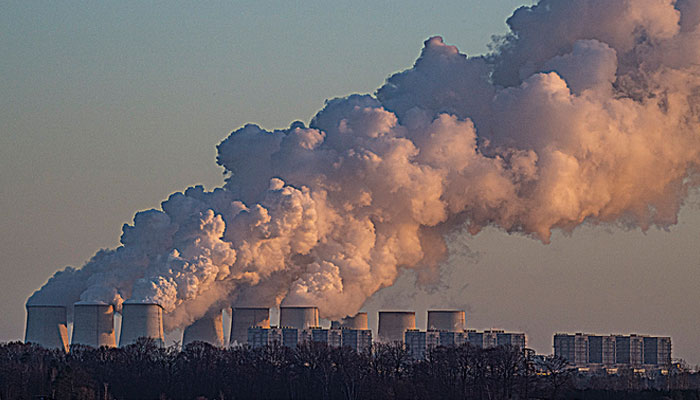Global warming is a security threat and armies must adapt: experts
PARIS: From responding to weather disasters to rising competition in the fast-warming Arctic, militaries are exposed to climate change and cannot let it become a strategic “blind spot”, security experts say.
Concerns have grown recently that climate action is being sidelined as Europe beefs up defence and the US retreats from allies and its green commitments. But defence departments have already underscored that a warming planet poses major national security challenges, and militaries need to adapt to respond to these evolving threats.
“You can´t escape this. Climate doesn´t care who´s president or what your political goals are at the moment,” said Erin Sikorsky, director of the Washington-based Centre for Climate & Security.
“It is coming, and militaries need to be prepared,” she said. In the US, where President Donald Trump´s administration has scrubbed global warming from government websites, the latest intelligence threat assessment made no mention of climate change.
Sikorsky said this leaves crucial strategic gaps, particularly when it comes to renewable energy superpower China and the race for supremacy in the Arctic, where the loss of sea ice is opening up shipping lanes and access to resources. “What I worry about, as someone who worked in national security for a long time, is this blind spot puts the US at risk,” she said.
-
 Who Becomes Duke Of York After Andrew Mountbatten-Windsor?
Who Becomes Duke Of York After Andrew Mountbatten-Windsor? -
 Christa Miller Teases 'Scrubs' Finale, Weighs In On Streaming Vs Network TV
Christa Miller Teases 'Scrubs' Finale, Weighs In On Streaming Vs Network TV -
 Prince William, Kate Middleton Share Powerful Message On World Wildlife Day
Prince William, Kate Middleton Share Powerful Message On World Wildlife Day -
 Mexico Buries Jalisco Cartel Chief El Mencho As Military Crackdown Continues
Mexico Buries Jalisco Cartel Chief El Mencho As Military Crackdown Continues -
 Kris Jenner Issues Final Verdict About Kanye West’s Future With The Kardashians
Kris Jenner Issues Final Verdict About Kanye West’s Future With The Kardashians -
 Ringo Starr Begins Bold New Chapter At 85
Ringo Starr Begins Bold New Chapter At 85 -
 What You Should Know Before Asking An AI Chatbot About Your Health
What You Should Know Before Asking An AI Chatbot About Your Health -
 Kris Jenner 'plays Nice' To Kanye West Only For Daughter Kim Kardashian's 'sake'
Kris Jenner 'plays Nice' To Kanye West Only For Daughter Kim Kardashian's 'sake' -
 Sarah Ferguson Is 'absolutely Terrified'
Sarah Ferguson Is 'absolutely Terrified' -
 Lauren Boebert: Lawmaker Behind Hillary Clinton's Leaked Photo Gets Roasted Over Definition Of Inflation
Lauren Boebert: Lawmaker Behind Hillary Clinton's Leaked Photo Gets Roasted Over Definition Of Inflation -
 Plane Crashes Into Icy Hudson River Near New York, Two Survive
Plane Crashes Into Icy Hudson River Near New York, Two Survive -
 Princess Dies At 73 After 'long Illness'
Princess Dies At 73 After 'long Illness' -
 Polls Show Most Americans Oppose Recent US Strikes On Iran
Polls Show Most Americans Oppose Recent US Strikes On Iran -
 Katie Price In 'danger' After Lee Andrews Marriage?
Katie Price In 'danger' After Lee Andrews Marriage? -
 Short Attention Spans Are Rising–Can Friction-maxxing Restore Your Focus?
Short Attention Spans Are Rising–Can Friction-maxxing Restore Your Focus? -
 Kelly Osbourne Reminded Of Her Attacks On Prince Harry As She Asks For Empathy
Kelly Osbourne Reminded Of Her Attacks On Prince Harry As She Asks For Empathy




